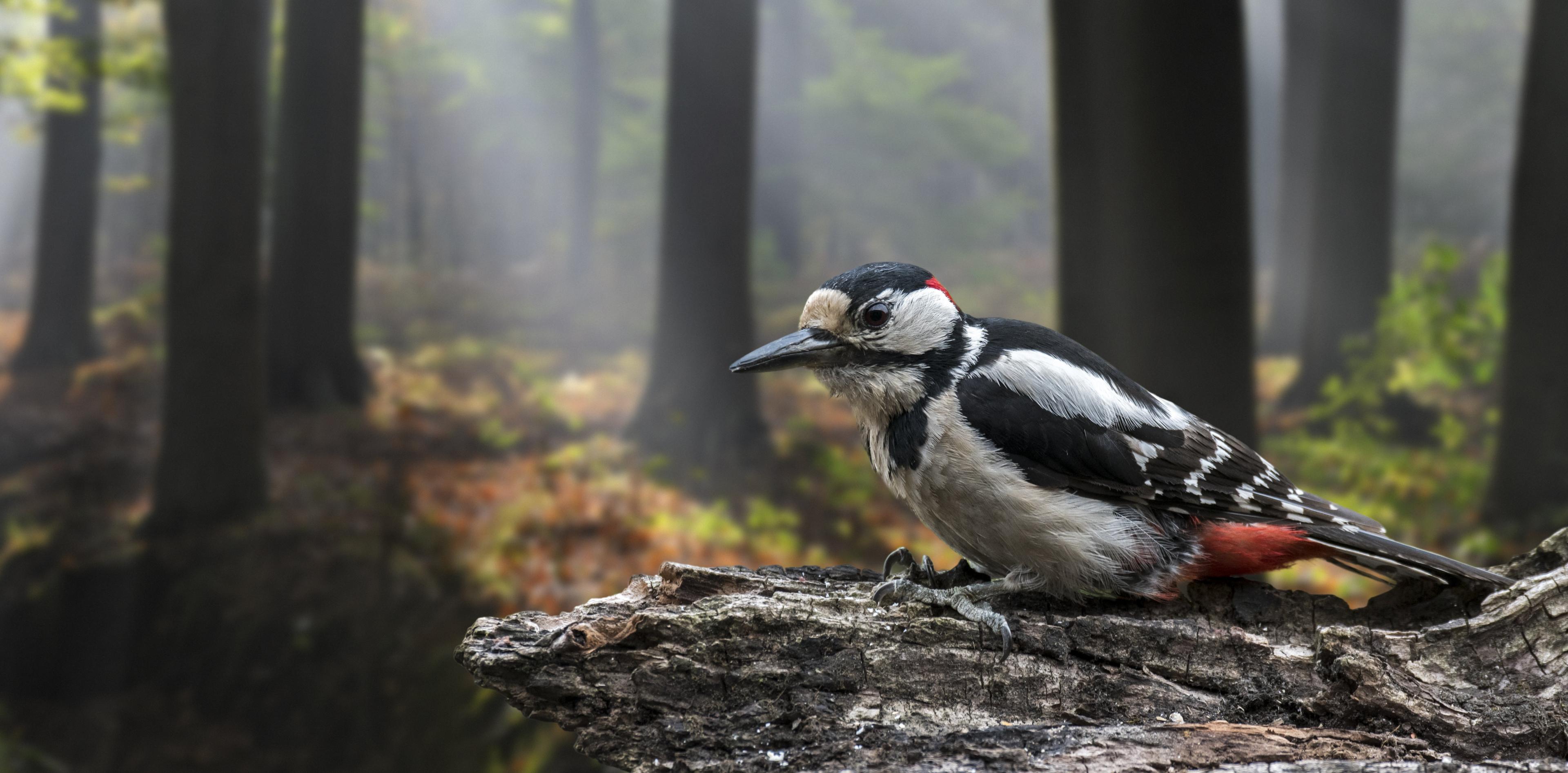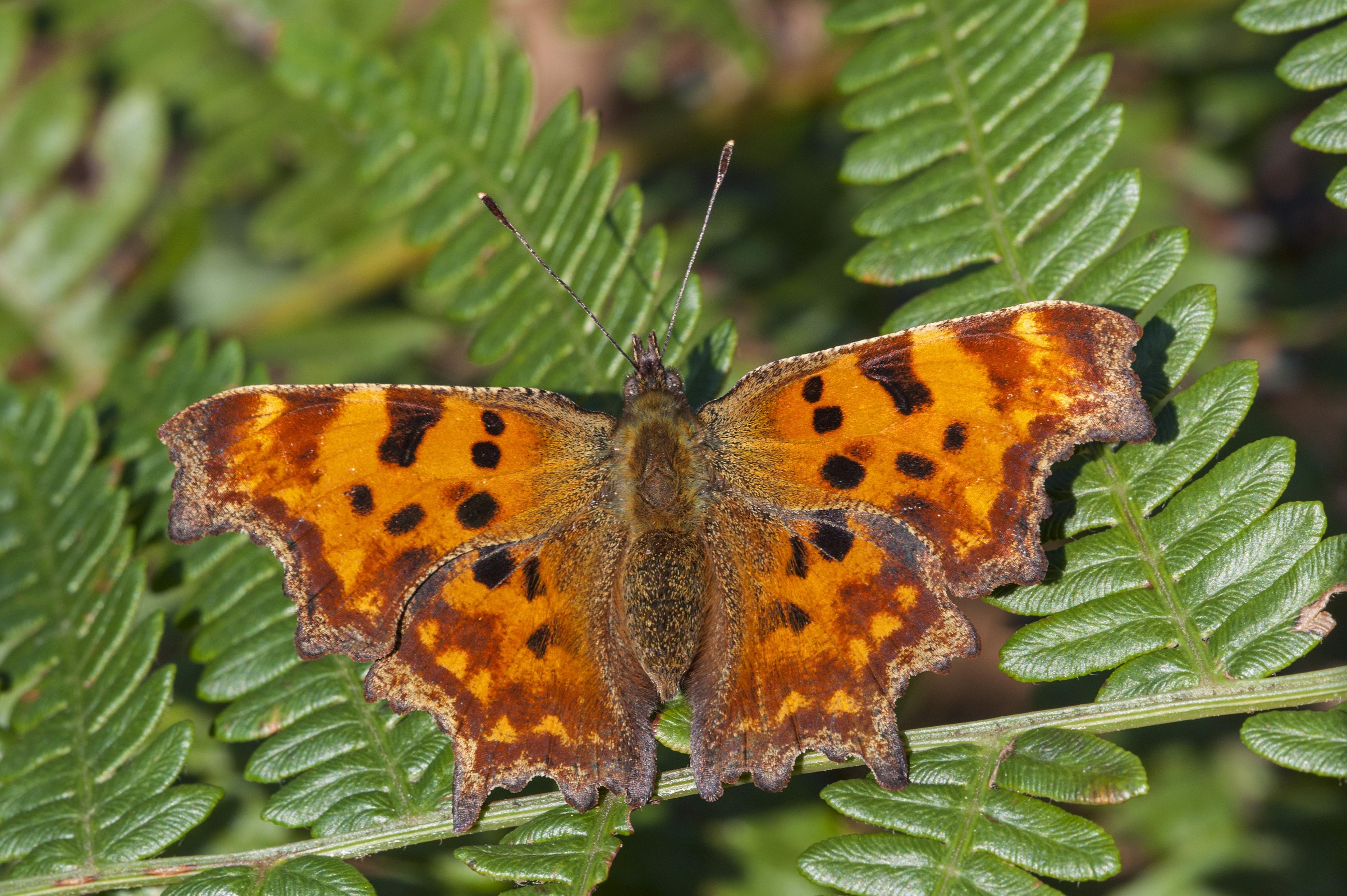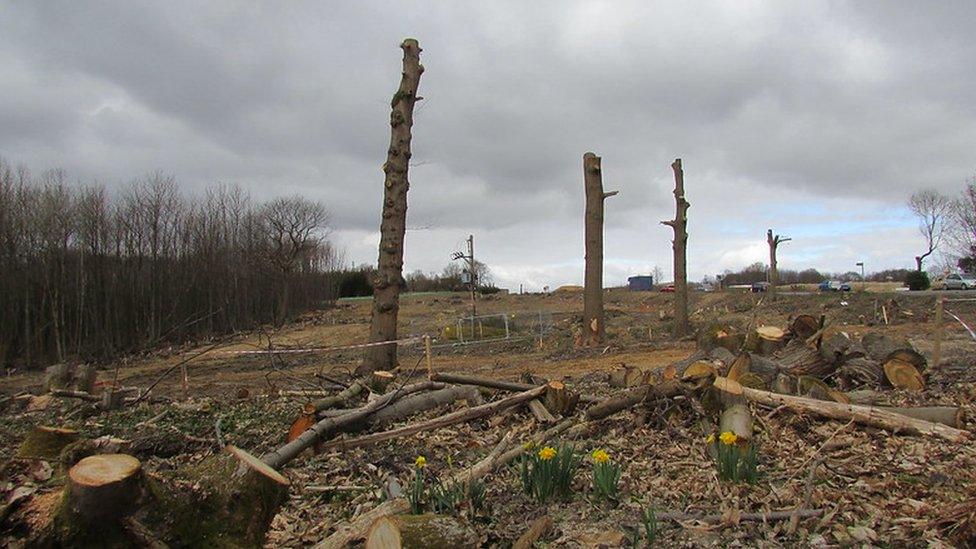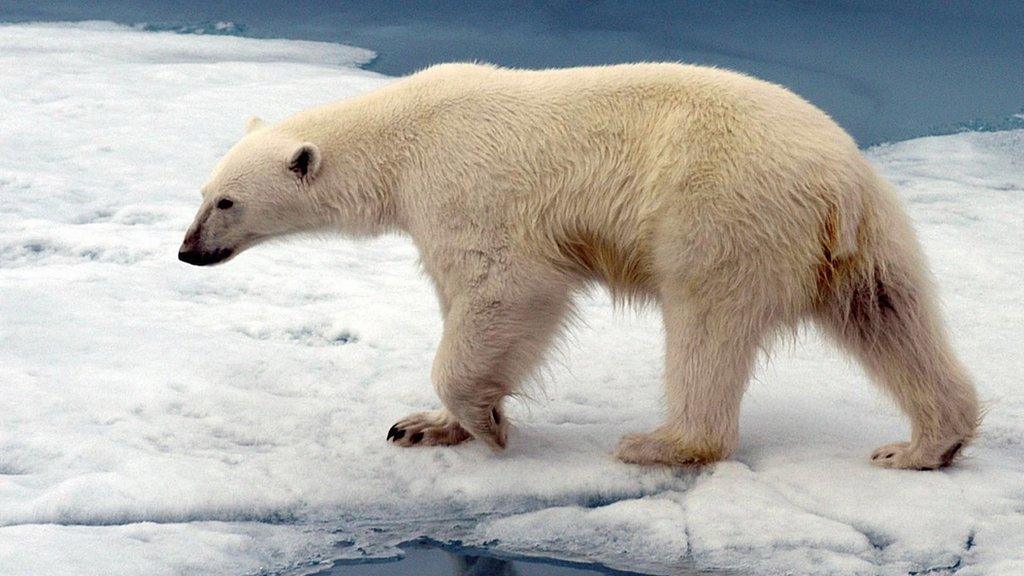Wildlife in UK woodlands is at crisis point as numbers decline
- Published
- comments

This is a great spotted wood pecker, a bird that needs woodlands to live in to survive
Only 7% of trees found in UK woodlands are in a good condition according to the Woodland Trust.
Although the number of trees in the UK is slowly growing with woodland covering up to 13% of UK land, which is up from 12% in 1998 - the wildlife living in them is declining.
If threats to woodland aren't tackled, the UK's ability to tackle climate and nature crises will be "severely damaged", the charity warns.
The Woodland Trust is among a number of groups calling for legally binding targets for the recovery of nature.
The Trust says that the warning signs are "loud and clear".
About half of UK woodland is made up of native tree species, such as oak, beech and ash. The remaining half comprises non-native trees such as conifers grown commercially for timber.
Despite the small increase in the amount of woodland cover over the past few decades, the trend for wildlife is one of steep decline, said the Woodland Trust.

Numbers of butterflies like this one which is a comma butterfly, are falling in the UK
The lead author of the report, Chris Reid, told the BBC that the falling numbers of wildlife is down to pollution, other invasive species, deer browsing - this is when deer overeat the leaves, bark, and green stems from plants - and wood being chopped into small parcels.
All of these problems need to be tackled, according to the report.

These trees were removed to build the A21 in Sussex
The report, which is titled 'State of the UK's Woods and Trees 2021', also talks about the types of trees the UK needs in its woodlands.
It suggests that the oldest and more established woodlands hold up to 36% of all woodland carbon which is about 77 million tonnes!
Invasive plants and none native trees should be removed in order to grow more oak, beech and ash trees in the UK.
The report also says that the UK should quadruple current tree planting efforts.
It recommends increasing UK woodland cover from its current level of 13% of total land cover to at least 17%, and possibly to 19% by 2050.
The Committee on Climate Change - who are the governments independent advisors on climate change - has also called for more tree planting in order to help the UK reach its goal of net-zero carbon emissions by 2050.
- Published28 December 2020
- Published19 June 2019

